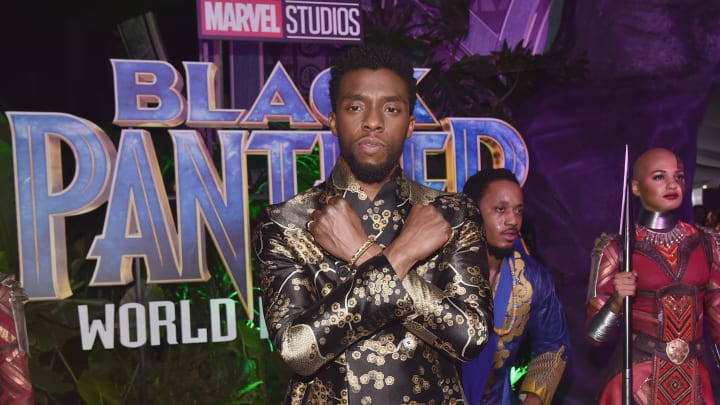Black Panther: A Cultural Milestone in Superhero Cinema

"Black Panther," directed by Ryan Coogler and released in 2018, represents a cultural milestone in superhero cinema. The film, featuring Marvel's first African superhero, T'Challa, also known as Black Panther, broke new ground with its predominantly Black cast, African-inspired aesthetics, and themes of cultural identity and social justice. The success of "Black Panther" transcended traditional superhero audiences, becoming a significant cultural phenomenon and leaving a lasting impact on the entertainment industry and society.
The character of Black Panther was created by writer Stan Lee and artist Jack Kirby, debuting in "Fantastic Four" #52 in 1966. As the king of the fictional African nation of Wakanda, T'Challa possesses superhuman abilities derived from the heart-shaped herb and advanced technology sourced from the rare metal vibranium. Over the years, Black Panther evolved into a prominent figure within Marvel Comics, known for his intelligence, leadership, and dedication to protecting his people and the world.
"Black Panther" the film introduced audiences to the richly imagined world of Wakanda, a technologically advanced nation hidden from the outside world. The movie's visual design drew heavily from various African cultures, incorporating traditional elements into futuristic settings. This blend of the old and new created a unique and vibrant aesthetic that set "Black Panther" apart from other superhero films.
Chadwick Boseman's portrayal of T'Challa was both powerful and nuanced, capturing the character's regal presence and inner conflict. T'Challa's journey in the film, from mourning his father's death to embracing his role as king and hero, resonated deeply with audiences. Boseman's performance, marked by dignity and strength, was widely praised and became a defining moment in his career.
The film's supporting cast, including Lupita Nyong'o as Nakia, Danai Gurira as Okoye, Letitia Wright as Shuri, and Michael B. Jordan as Erik Killmonger, contributed to its richness and depth. Each character brought unique perspectives and strengths, adding layers to the narrative. Jordan's portrayal of Killmonger, in particular, stood out for its complexity; his character's motivations were rooted in real-world issues of racial injustice and diaspora, making him one of Marvel's most compelling villains.
"Black Panther" also explored themes of identity, heritage, and responsibility. T'Challa's struggle to balance tradition with progress, and his eventual decision to open Wakanda to the world, mirrored broader discussions about cultural preservation and global interconnectedness. The film addressed issues such as colonialism, racism, and the African diaspora, resonating with audiences worldwide and sparking important conversations.
The film's impact extended beyond its narrative. "Black Panther" achieved remarkable commercial success, grossing over $1.3 billion worldwide and becoming one of the highest-grossing films of all time. It also garnered critical acclaim, receiving numerous awards and nominations, including three Academy Awards. Its success demonstrated the demand for diverse storytelling and representation in Hollywood, challenging the industry's status quo.
"Black Panther" also inspired a sense of pride and empowerment among Black audiences. The film's depiction of a thriving, uncolonized African nation, along with its celebration of Black culture and excellence, resonated deeply. It became more than just a movie; it was a cultural event that affirmed the importance of representation and the power of seeing oneself reflected on the big screen.
In conclusion, "Black Panther" stands as a landmark in superhero cinema, celebrated for its cultural significance, compelling storytelling, and groundbreaking representation. The film's success highlighted the need for diverse voices and stories in the entertainment industry, paving the way for future projects that celebrate different cultures and perspectives. "Black Panther" not only redefined the superhero genre but also left an indelible mark on popular culture and society, affirming the importance of representation and the power of film to inspire and unite.